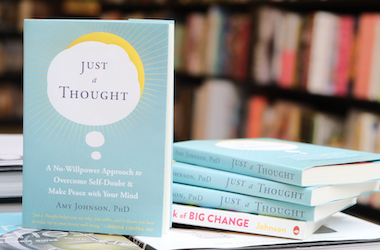Three of Gwen’s immediate family members died, and two of her remaining family members cut off their relationship with her, within a 10-month time span. 
A month after the third death she asked the not-at-all-rhetorical question, “How do I get over this?”
“What do I do? How do I heal myself from the trauma of so much loss?”
Then she waited for my instructions.
Later that day, Emily asked me to help her rewire her brain.
Her drinking and binge eating habits were clearly a brain wiring issue, she told me. Her brain was off-track. It had its wires crossed.
The obvious next question was: what is the process for rewiring a brain? How does one do that?
“I’m really asking”, she insisted. “How do I start?”
Gwen and Emily both seemed disappointed that I didn’t have a 7-step process for them.
There is no app that heals trauma; no ‘proven system’ that rewires your brain.
There is no how when it comes to healing your own grief or changing your own brain because healing emotional pain and changing your brain are not your job.
In our pain, we say “Just tell me what to do and I’ll do it.”
In our pain, we want the quickest way out. We’re used to falling for the illusion that we control life and this looks like no exception.
But it doesn’t actually work that way. Trauma heals itself. And your brain rewires itself.
There is no how when it comes to healing your own grief or changing your own brain because nothing is broken.
If you must do something, look toward understanding how your mind and resilience truly work. When you see that, you don’t try to fix things that aren’t broken.
Grief and stuckness do not point to the presence of a problem—they point to the presence of thought moving through you, bringing normal, temporary human experience.
They are nothing you can or need to fix. If there is any “problem” in this scenario, it’s that you’re innocently misunderstanding the way the human experience works.
You’re overlooking your health and resilience. You’re not resting in the safety of the self-correcting, bounce-back nature of your mind.
When you see that your mind is self-correcting—that trauma and grief move through you and heal on their own, and that habits are helpful signs that it’s time to step aside and let nature reign—everything takes care of itself.
Literally.
Your trauma feels healed and your brain feels rewired. You see life differently because you’re not filling your mind with lists of problems you need to fix.
You’re not afraid of your experience.
You’re not taking on the daunting task of uncrossing imaginary, metaphorical wires.
You’re seeing the truth: Nothing is broken.





